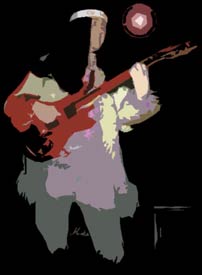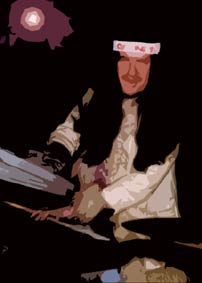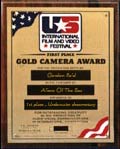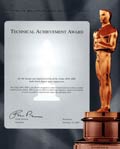|






Last update: 8 November 2024
|
My mother was a concert pianist. That explains a lot, I suppose. But you shouldn't blame her for what follows...

I started playing piano when I was two years old. I can't remember how it sounded, but it was bad enough for my parents to insist that I take piano lessons when I was old enough. First, though, they made me sing. That was a mistake.
Unfortunately, my piano teacher believed that musical composition had stopped circa 1850. As far as she was concerned, Wagner and Mahler were new-fangled rubbish, not to be mistaken for
real
music. As for "that horrible modern noise..." that I liked - there was no hope for me whatsoever. As a result, and despite winning a couple of music festivals as a junior pianist, I soon lost interest in playing and quit my lessons. Blessed relief! I would never have to play another boring, twiddly baroque exercise again!
I was eleven when I discovered blues and jazz piano. A 4th-former at my school was messing around with E, A and B7, and I thought that it sounded incredible. After that, there was no looking back. Oh yes, there was also the small matter of a three-manual cathedral organ to master. Now, that was fun...
My first synthesiser coincided with the early days of progressive rock. So it's no surprise that I spent much of the early-70s trying to play ELP and Genesis tracks on a cheap monosynth. It didn't work. (The synth did, the ELP didn't.) So I joined the world's first punk band, endearingly named Hot Matron and the Haemorrhages, but always known simply as Hot Matron.
With all due respect to some very fine musicians in that band (all of whom have since gone on to have a greater or lesser degree of musical success) Hot Matron was less than, shall we say... polished. Great fun - yes. Polished - no. Then there were its many successors, including the one that I was in, the poorly named 6th-form supergroup and one-gig wonder, Cheesecake. It was time to do something different, so I went to University and took the opportunity to spend my grant on more keyboards and start a new band. Mirage was a real throwback to the heyday of Prog but, like all latter-day prog bands, we had a core of fanatical supporters. (Well, maybe 'fanatical' is too strong... mildly interested is much nearer the truth.) Oh yes, and we had a great, jazz-influenced drummer - take a bow please, Ronnie Bennett.
In 1981, Ronnie and I moved to Cambridge, and Mirage metamorphosed into the aptly (indeed,
too
aptly) named Déjà-Vu. In an era of electro-pop and New Romantics, we continued to plough the Prog furrow. One reviewer claimed that our guitarist even
looked
like Mike Rutherford! With no bass player, we created huge keyboard textures - blame The Enid for that - laced with guitar, drums, and a female singer who couldn't sing. Ah, the days of the epic 22-minute composition... it's a shame that we didn't realise that we were ten years too late.
 Deja-Vu lived, together with its engineer/lyricist, Ian Oakley, in a converted coach house just outside Cambridge. It was an idyllic time, until the guitarist and I started punching each other. So I left, followed shortly afterwards by Ian and Ronnie, who moved to Romford to join the latest incarnation of Chemical Alice - itself decimated by the departure of Mark Kelly to Marillion after they had appeared together on the same bill. I then re-arranged much of the material for solo performance using one of those new drum-box-thingies that had started to appear. With nine keyboards, bass pedals, two microphones, and half a ton of back line, mixers and whatever... I could almost (but only 'almost') make the music sound as I had originally intended.
Deja-Vu lived, together with its engineer/lyricist, Ian Oakley, in a converted coach house just outside Cambridge. It was an idyllic time, until the guitarist and I started punching each other. So I left, followed shortly afterwards by Ian and Ronnie, who moved to Romford to join the latest incarnation of Chemical Alice - itself decimated by the departure of Mark Kelly to Marillion after they had appeared together on the same bill. I then re-arranged much of the material for solo performance using one of those new drum-box-thingies that had started to appear. With nine keyboards, bass pedals, two microphones, and half a ton of back line, mixers and whatever... I could almost (but only 'almost') make the music sound as I had originally intended.
Bill (the original Déjà-Vu guitarist) and I worked together again in 1984 and 1985 before, in 1986, the band was reborn with all-new personnel that including a bass guitarist. It lasted for five years through three incarnations, with at least one former member leaving to become a highly regarded guitarist in the USA. The turning point was, however, when the bassist told me that I shouldn't use my Minimoog on stage because "it detracted from the singer and guitarist". Shortly thereafter, the band split - and not before time.
During this period I was commissioned to write and record some music for BBC Radio, most significantly for The Technoshow, which was broadcast at least twice a week for around five years in the late 80s.
Deja-Vu's final guitarist was Clive Osborn, an excellent musician would later feature on three tracks from my unreleased Painting Imperfect Pictures album. Clive brought a harder edge to the band, transforming it from neo-Genesis widdling into a tighter and significantly better act. We continued to work together on other projects, including the Mellotron CD, Rime Of The Ancient Sampler, and the infamous Clive's Wedding, with me wearing a scarlet satin basque, fishnets, high heels and... a saxophone.
In 1997 I was approached by Pawel Achtel, a Polish/Australian diver who had heard a couple of the tracks composed for Pictures while I was working at a studio in Sydney. He asked me to create a soundtrack for his Aliens Of The Sea project, and I was delighted to do so. Combining synths, percussion, and Clive's excellent guitar work, we managed to avoid the 'aimless twiddling over A minor' that characterises so much modern soundtrack music.
 Happily, the world seemed to enjoy the results. Premiered at the New York International Film and Video Festival in 1999, it was received very warmly and won the Gold Camera Award for the Best Soundtrack. To give credit where it's due, we recorded almost everything on Aliens at Nick Magnus's Alpha Control Studio. Nick is a renowned keyboard player and percussionist who worked for many years with former Genesis guitarist, Steve Hackett, and his solo albums as well as numerous Synthesiser, Panpipe and Celtic CDs have sold millions of copies world-wide. As well as playing all of the drums and percussion, he engineered and then polished my rather raw material in ways that I could never have achieved. The album was then mastered by Simon Heyworth, the co-producer of Tubular Bells. (Fortunately for Simon, working with me was just a temporary blip in an otherwise stellar career!)
Happily, the world seemed to enjoy the results. Premiered at the New York International Film and Video Festival in 1999, it was received very warmly and won the Gold Camera Award for the Best Soundtrack. To give credit where it's due, we recorded almost everything on Aliens at Nick Magnus's Alpha Control Studio. Nick is a renowned keyboard player and percussionist who worked for many years with former Genesis guitarist, Steve Hackett, and his solo albums as well as numerous Synthesiser, Panpipe and Celtic CDs have sold millions of copies world-wide. As well as playing all of the drums and percussion, he engineered and then polished my rather raw material in ways that I could never have achieved. The album was then mastered by Simon Heyworth, the co-producer of Tubular Bells. (Fortunately for Simon, working with me was just a temporary blip in an otherwise stellar career!)
 Now, did anybody ever tell you the story of the guy who failed to receive an Academy Award because he filled in the forms incorrectly? Well, it's true. In February 2005, my colleagues and I were awarded a SciTech Academy Award and although I completed all of the documentation, I forgot to add my own name and that of Clive to the list of recipients. We still attended the ceremony, of course, and we were delighted to receive the honour, but it would have been nice to have had our names on the bl**dy thing!
Now, did anybody ever tell you the story of the guy who failed to receive an Academy Award because he filled in the forms incorrectly? Well, it's true. In February 2005, my colleagues and I were awarded a SciTech Academy Award and although I completed all of the documentation, I forgot to add my own name and that of Clive to the list of recipients. We still attended the ceremony, of course, and we were delighted to receive the honour, but it would have been nice to have had our names on the bl**dy thing!
I also had the privilege of working with the great (and now, sadly, late) Keith Emerson who, together with Tony Banks of Genesis, probably did as much as anyone to shape the course of my life. (Neither knew it at the time, of course.) Keith was a fantastic guy and, despite his immense talent and achievements, he was incredibly humble and approachable. Indeed, when I first met him in the 1980s and addressed him as Mr Emerson, he just smiled and said "Call me Keef..." and that was that. Helping to set up his keyboards, helping to make sure that everything was in tune and mixing rehearsals ready for the next concert was a rare honour, and when he was late for the first soundcheck at The Barbican in 2015 and I stumbled through Fanfare For The Common Man with the band... Well, what can I say!
At around the same time, I was pleased to contribute to the soundtrack of Bright Sparks, a documentary that profiles luminaries of the synthesiser field including Herb Deutsch, Alan Pearlman, Peter Zinovieff and Ken Freeman. How could I resist playing for 'I Monster' on a track called The Further Adventures Of Ken Freeman & His Incredible Machine Of A Thousand Strings? Of course, I couldn't. And, back in Australia for a few weeks, I worked on the audio that would become the track Giving Me A Chance from the album Making Mirrors by Gotye.
There have been numerous other projects but, since 2007, I have also been the keyboard player in the Pink Floyd trubute band, The Floyd Effect. Having started in quite a small way, we grew rapidly and within three years were headlining tribute festivals up and down the country. We perform in theatres across England and Wales, and have headlined numerous festivals in the UK and abroad, including Cyprus Rocks, Legends Of Rock and The Best Of British Rock. TFE is packed with top-class musicians and vocalists who have worked with the likes of David Bowie, Janet Jackson, Jon Bon Jovi and Brian Adams, and working with them has proved to be very rewarding. What's more, nobody has punched anybody yet. Hopefully, you'll have the opportunity to come to see us, and to say "hello".
At this point, I'll simply thank everybody in this story - named and anonymous to protect the guilty - and leave it to you to decide whether any of it has been worth it.
All the best,
Gordon.
|

